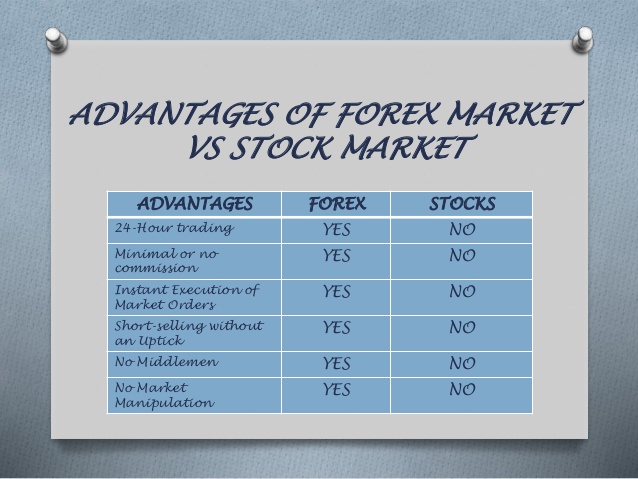
If you're thinking about investing in high yield bonds, you've probably been curious about what to look for. High yield bonds, however, are not for the weak of heart. We'll be discussing Interest rates, Credit ratings and other common characteristics. Before we get into all the details let's briefly review the common characteristics associated with high yield bonds. For those still unsure, here are some tips.
Rates of interest
The bond's higher yield is called "high yield". High yield bonds are typically shorter in maturity (typically around 10 years) and generally callable. This means that the issuer might choose to repurchase it at a later date. These bonds tend to be more volatile that other types of bonds. Prices respond more strongly than daily fluctuations in interest rates to changes in economic and corporate earnings. High yield bonds are more likely to outperform other forms of fixed income, so investors might be more interested in them.
High yield bonds carry a greater risk than investment-grade bonds due to their higher yield. Because they have lower credit scores, high yield bonds are more likely than investment-grade bonds to default. This causes the price to drop. These bonds have higher interest rates due to their lower credit quality. High-yield bonds are typically issued by startups, small capital-intensive companies and even fallen angels. This means that they have a low credit rating. Investors should not underestimate the risk associated with high-yield bonds.

Ratings on credit
This is not a straightforward cycle. Credit ratings for high-yield bonds fluctuate in a constant rise and fall. Rising stars have attracted attention, but it is vital to monitor the market's progress. Rising stars are being noticed for their ability to indicate future price support. Unfortunately, they are also becoming more expensive than previous generations. The entire market cycle revolves around the changes in credit ratings. Also, rising stars indicate better quality than before.
High yield bonds aren't rated high-quality investments. These bonds have a lower credit rating than investment grade bonds. Therefore, they are not recommended for most investors. The credit rating given by the rating agency does not last forever and can be affected by changes in the performance of the issuer. High yield bonds can become junk bonds or investment-grade due to this. Investors should only choose high-quality bonds to avoid these risks.
Common features
High yield bond are unsecured obligations that carry a higher probability of default. High yield bonds are less restrictive than investment grade bonds and can be more flexible than bank loan loans. They are often amended during marketing. NerdWallet takes more than 15 factors into consideration when scoring high yield bonds. Here are some common characteristics for high yield bonds. If you are interested in investing in high yield debt, please read the introduction.
High yield bonds can generate equity-like returns but also come with speculative risk. In reality, high yield markets have a low positive correlation to investment-grade bonds and stocks. Investors should be aware of the risks before they invest in this type bond. It is important to note that this type debt yields higher than treasuries.

Investing in high-yield bonds
You might be tempted to buy high yield bonds if you desire a higher return on your investments. But you should be aware that high yield bonds carry risks. Before you decide to invest in high yield bonds, consult a financial professional. Before investing in high yield bonds, there are many factors you should consider, such as your risk tolerance, time frame, and current asset allocation.
High-yield bonds move in the same way as stocks and may not be able to diversify portfolios that are stock-heavy. They are also less liquid than investment grade bonds. High-yield bonds are also more susceptible to being downgraded by credit rating agencies. This can affect the bond's value. It is important to thoroughly research potential investments. A financial adviser may also be able to provide guidance.
FAQ
How do I invest my money in the stock markets?
Brokers allow you to buy or sell securities. A broker can sell or buy securities for you. Trades of securities are subject to brokerage commissions.
Banks charge lower fees for brokers than they do for banks. Banks are often able to offer better rates as they don't make a profit selling securities.
You must open an account at a bank or broker if you wish to invest in stocks.
If you are using a broker to help you buy and sell securities, he will give you an estimate of how much it would cost. This fee will be calculated based on the transaction size.
You should ask your broker about:
-
Minimum amount required to open a trading account
-
Are there any additional charges for closing your position before expiration?
-
What happens when you lose more $5,000 in a day?
-
How long can positions be held without tax?
-
What you can borrow from your portfolio
-
Whether you are able to transfer funds between accounts
-
How long it takes transactions to settle
-
The best way for you to buy or trade securities
-
How to Avoid Fraud
-
How to get help for those who need it
-
Whether you can trade at any time
-
What trades must you report to the government
-
Whether you are required to file reports with SEC
-
What records are required for transactions
-
whether you are required to register with the SEC
-
What is registration?
-
What does it mean for me?
-
Who should be registered?
-
When do I need registration?
What's the difference between a broker or a financial advisor?
Brokers are people who specialize in helping individuals and businesses buy and sell stocks and other forms of securities. They take care of all the paperwork involved in the transaction.
Financial advisors can help you make informed decisions about your personal finances. Financial advisors use their knowledge to help clients plan and prepare for financial emergencies and reach their financial goals.
Financial advisors can be employed by banks, financial companies, and other institutions. They could also work for an independent fee-only professional.
If you want to start a career in the financial services industry, you should consider taking classes in finance, accounting, and marketing. Also, you'll need to learn about different types of investments.
What is the difference between stock market and securities market?
The securities market refers to the entire set of companies listed on an exchange for trading shares. This includes stocks as well options, futures and other financial instruments. Stock markets are typically divided into primary and secondary categories. Primary stock markets include large exchanges such as the NYSE (New York Stock Exchange) and NASDAQ (National Association of Securities Dealers Automated Quotations). Secondary stock markets are smaller exchanges where investors trade privately. These include OTC Bulletin Board Over-the-Counter, Pink Sheets, Nasdaq SmalCap Market.
Stock markets are important because they provide a place where people can buy and sell shares of businesses. The value of shares depends on their price. When a company goes public, it issues new shares to the general public. Dividends are received by investors who purchase newly issued shares. Dividends refer to payments made by corporations for shareholders.
Stock markets are not only a place to buy and sell, but also serve as a tool of corporate governance. Boards of directors, elected by shareholders, oversee the management. The boards ensure that managers are following ethical business practices. If a board fails to perform this function, the government may step in and replace the board.
Statistics
- Our focus on Main Street investors reflects the fact that American households own $38 trillion worth of equities, more than 59 percent of the U.S. equity market either directly or indirectly through mutual funds, retirement accounts, and other investments. (sec.gov)
- Even if you find talent for trading stocks, allocating more than 10% of your portfolio to an individual stock can expose your savings to too much volatility. (nerdwallet.com)
- The S&P 500 has grown about 10.5% per year since its establishment in the 1920s. (investopedia.com)
- "If all of your money's in one stock, you could potentially lose 50% of it overnight," Moore says. (nerdwallet.com)
External Links
How To
How to Trade on the Stock Market
Stock trading involves the purchase and sale of stocks, bonds, commodities or currencies as well as derivatives. Trading is French for "trading", which means someone who buys or sells. Traders buy and sell securities in order to make money through the difference between what they pay and what they receive. It is one of the oldest forms of financial investment.
There are many different ways to invest on the stock market. There are three types that you can invest in the stock market: active, passive, or hybrid. Passive investors are passive investors and watch their investments grow. Actively traded investor look for profitable companies and try to profit from them. Hybrids combine the best of both approaches.
Index funds that track broad indexes such as the Dow Jones Industrial Average or S&P 500 are passive investments. This strategy is extremely popular since it allows you to reap all the benefits of diversification while not having to take on the risk. You can just relax and let your investments do the work.
Active investing means picking specific companies and analysing their performance. Active investors will analyze things like earnings growth rates, return on equity and debt ratios. They also consider cash flow, book, dividend payouts, management teams, share price history, as well as the potential for future growth. They decide whether or not they want to invest in shares of the company. If they feel that the company is undervalued, they will buy shares and hope that the price goes up. They will wait for the price of the stock to fall if they believe the company has too much value.
Hybrid investment combines elements of active and passive investing. A fund may track many stocks. However, you may also choose to invest in several companies. In this case, you would put part of your portfolio into a passively managed fund and another part into a collection of actively managed funds.